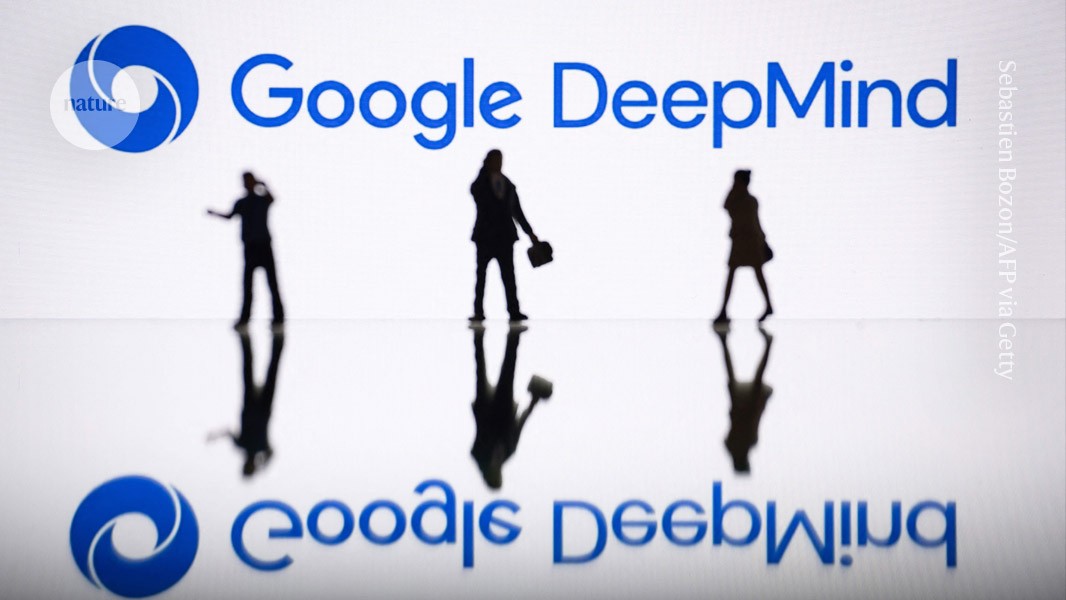DeepMind AI crushes tough maths problems on par with top human solvers

The company’s AlphaGeometry2 is now competitive reaches level of gold-medal students in the International Mathematical Olympiad

Google DeepMind’s AI AlphaGeometry2 aced problems set at the International Mathematical Olympiad.Credit: Sebastien Bozon/AFP via Getty
A year ago AlphaGeometry, an artificial-intelligence (AI) problem solver created by Google DeepMind, surprised the world by performing at the level of silver medallists in the International Mathematical Olympiad (IMO), a competition that sets tough maths problems for gifted high-school students.
The DeepMind team now says the performance of its upgraded system, AlphaGeometry2, has surpassed the level of the average gold medallist. The results are described in a preprint on the arXiv1.
“I imagine it won’t be long before computers are getting full marks on the IMO,” he says Kevin Buzzard, a mathematician at Imperial College London.
Solving problems in Euclidean geometry is one of the four topics covered in IMO problems — the others cover the branches of number theory, algebra and combinatorics. Geometry demands specific skills of an AI, because competitors must provide a rigorous proof for a statement about geometric objects on the plane. In July, AlphaGeometry2 made its public debut alongside a newly unveiled system, AlphaProof, which DeepMind developed for solving the non-geometry questions in the IMO problem sets.
Mathematical language
AlphaGeometry is a combination of components that include a specialized language model and a ‘neuro-symbolic’ — one that does not train by learning from data like a neural network but has abstract reasoning coded in by humans. The team trained the language model to speak a formal mathematical language, which makes it possible to automatically check its output for logical rigour — and to weed out the ‘hallucinations’, the incoherent or false statements that AI chatbots are prone to making.
For AlphaGeometry2, the team made several improvements, including the integration of Google’s state-of-the-art large language model, Gemini. The team also introduced the ability to reason by moving geometric objects around the plane — such as moving a point along a line to change the height of a triangle — and solving linear equations.

The International Mathematical Olympiad is a prestigious annual competition for gifted school students.Credit: Valerie Kuypers/AFP via Getty
The system was able to solve 84% of all geometry problems given in IMOs in the past 25 years, compared with 54% for the first AlphaGeometry. (Teams in India and China used different approaches last year to achieve gold-medal-level performance in geometry, but on a smaller subset of IMO geometry problems2,3.)
The authors of the DeepMind paper write that future improvements of AlphaGeometry will include dealing with maths problems that involve inequalities and non-linear equations, which will be required to to “fully solve geometry”.
Enjoying our latest content?
Login or create an account to continue
- Access the most recent journalism from Nature's award-winning team
- Explore the latest features & opinion covering groundbreaking research
or
Sign in or create an accountdoi: https://doi.org/10.1038/d41586-025-00406-7
This story originally appeared on: Nature - Author:Davide Castelvecchi


















